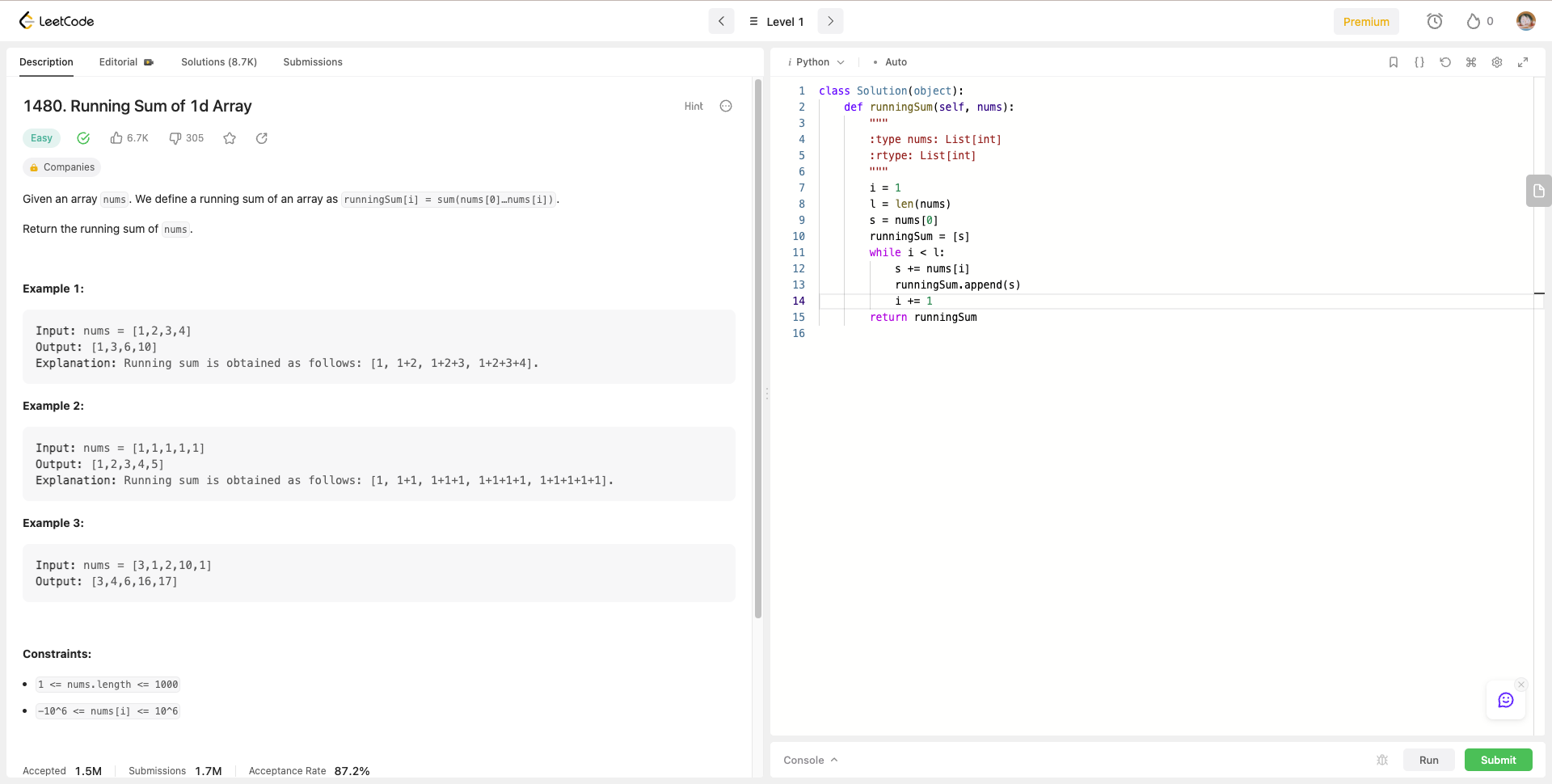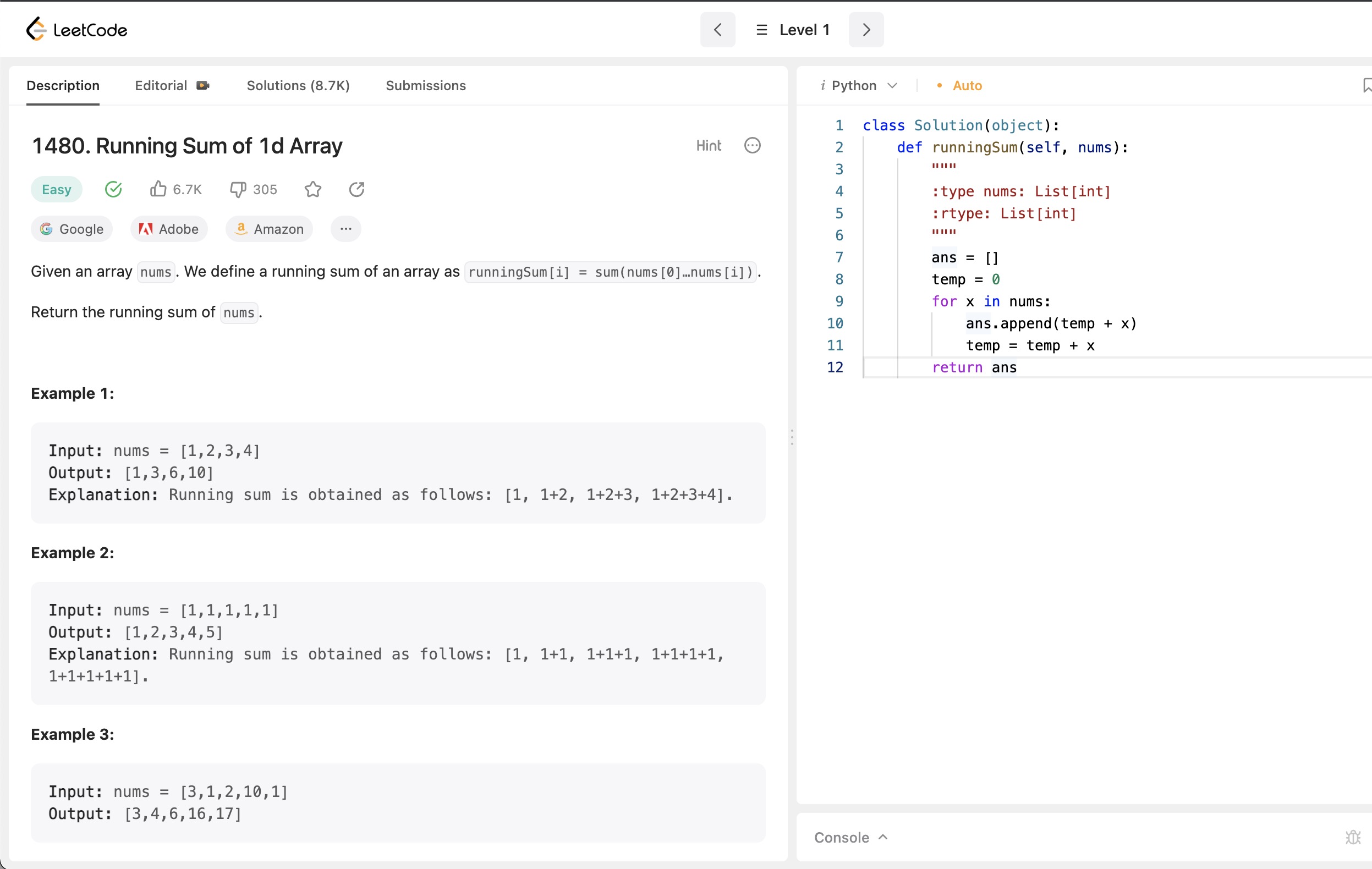|
|
马上注册,结交更多好友,享用更多功能^_^
您需要 登录 才可以下载或查看,没有账号?立即注册
x
本帖最后由 Judie 于 2023-5-23 02:22 编辑
Given an array nums. We define a running sum of an array as runningSum[i] = sum(nums[0]…nums[i]).
Return the running sum of nums.
Example 1:
Input: nums = [1,2,3,4]
Output: [1,3,6,10]
Explanation: Running sum is obtained as follows: [1, 1+2, 1+2+3, 1+2+3+4].
Example 2:
Input: nums = [1,1,1,1,1]
Output: [1,2,3,4,5]
Explanation: Running sum is obtained as follows: [1, 1+1, 1+1+1, 1+1+1+1, 1+1+1+1+1].
Example 3:
Input: nums = [3,1,2,10,1]
Output: [3,4,6,16,17]
Constraints:
1 <= nums.length <= 1000
-10^6 <= nums[i] <= 10^6
- class Solution(object):
- def runningSum(self, nums):
- """
- :type nums: List[int]
- :rtype: List[int]
- """
Judy
- class Solution(object):
- def runningSum(self, nums):
- """
- :type nums: List[int]
- :rtype: List[int]
- """
- i = 1
- l = len(nums)
- s = nums[0]
- runningSum = [s]
- while i < l:
- s += nums[i]
- runningSum.append(s)
- i +=1
- return runningSum
-

Gray
- class Solution(object):
- def runningSum(self, nums):
- """
- :type nums: List[int]
- :rtype: List[int]
- """
- ans = []
- temp = 0
- for x in nums:
- ans.append(temp + x)
- temp = temp + x
- return ans

|
|
 ( 粤ICP备18085999号-1 | 粤公网安备 44051102000585号)
( 粤ICP备18085999号-1 | 粤公网安备 44051102000585号)